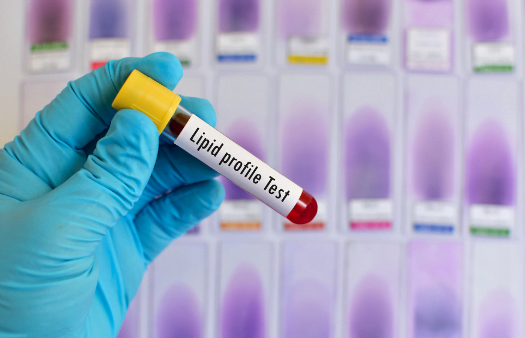Lipid Oxidation Testing in Edible Seed Oils
The testing of lipid oxidation in edible seed oils is a critical process within the clinical and healthcare sector. This analysis helps ensure that food products are safe, nutritious, and meet stringent quality standards set by regulatory bodies such as the FDA (United States Food and Drug Administration) and Codex Alimentarius Commission.
Edible seed oils play an essential role in global nutrition, providing essential fatty acids and other beneficial compounds. However, lipid oxidation can lead to the formation of harmful compounds that affect not only flavor but also nutritional value and shelf life. Therefore, monitoring lipid peroxidation is crucial for ensuring product integrity and consumer safety.
Lipid oxidation is a complex process involving several chemical reactions initiated by various factors including light exposure, temperature fluctuations, and microbial activity. The primary products of this reaction are aldehydes (such as malonaldehyde), ketones, and hydroperoxides. These compounds can degrade the quality of oils leading to rancidity, which negatively impacts both sensory attributes and health benefits.
Our laboratory employs advanced analytical techniques including gas chromatography-mass spectrometry (GC-MS) for precise quantification of lipid oxidation products. This method allows us to identify specific markers indicative of oxidative stress in the oil matrix. Additionally, we utilize peroxide value measurement according to international standards such as ISO 6893:2014 and AOCS Official Method Ce2a-15.
The testing procedure typically involves several steps starting with proper sample preparation where oils are extracted using solvents like hexane or supercritical carbon dioxide. Once prepared, samples undergo rigorous analysis under controlled conditions to minimize external influences on the oxidation process. Our team of experts ensures that all procedures adhere strictly to recommended practices ensuring accurate results.
Understanding how different environmental factors influence lipid stability is vital for maintaining product quality throughout distribution channels. Factors such as storage temperature and duration significantly impact oxidative rates; thus, our tests provide valuable insights into optimal storage conditions needed to preserve freshness longer. Furthermore, understanding these parameters helps manufacturers design effective packaging solutions aimed at protecting against light penetration and oxygen exposure.
By offering this service, we support healthcare professionals in making informed decisions about product selection based on rigorous scientific evaluation. Compliance with international standards ensures consistency across markets while promoting healthier dietary choices among consumers worldwide.
Why It Matters
The significance of lipid oxidation testing extends beyond just maintaining product quality; it also plays a crucial role in public health and safety. Oxidized lipids are associated with increased risk factors for cardiovascular diseases, cancer, and other chronic illnesses. By monitoring these compounds through regular testing, we contribute to reducing potential health hazards linked to poor-quality food products.
For healthcare professionals involved in patient care, understanding the extent of lipid oxidation can help tailor dietary recommendations more accurately. For instance, individuals with specific medical conditions might benefit from consuming oils with lower levels of oxidative stress markers. This knowledge supports evidence-based decision-making processes aimed at improving overall well-being.
In addition to its direct health implications, controlling lipid oxidation contributes positively towards sustainability efforts by prolonging shelf life and minimizing waste generation associated with expired goods. Efficient management practices reduce resource consumption during production cycles while promoting responsible disposal methods after use.
Environmental and Sustainability Contributions
- Reduced food waste due to extended shelf life of treated products.
- Promotion of sustainable agricultural practices by encouraging the production of healthier oils with reduced environmental impact.
- Decrease in packaging material requirements thanks to improved product stability leading to longer-lasting containers and less frequent replacements.
The reduction in waste not only conserves resources but also decreases landfill contributions, thereby supporting global sustainability goals. By adopting sustainable practices throughout the supply chain, we collectively work towards creating a healthier planet for future generations.
Use Cases and Application Examples
| Use Case | Description |
|---|---|
| Dietary Supplement Development | Evaluating new sources of omega-3 fatty acids derived from seeds. |
| New Product Introduction | Assessing the stability and safety profile of novel cooking oil blends before market launch. |
| Application Example | Description |
|---|---|
| Packaging Optimization | Determining optimal storage conditions for specific types of seed oils to enhance shelf life. |
| Quality Control Monitoring | Continuous monitoring during processing stages ensures consistent quality throughout production runs. |
These examples illustrate the versatility and importance of lipid oxidation testing across various industries. From developing innovative products to optimizing existing processes, our laboratory offers comprehensive support tailored specifically to meet individual needs.





